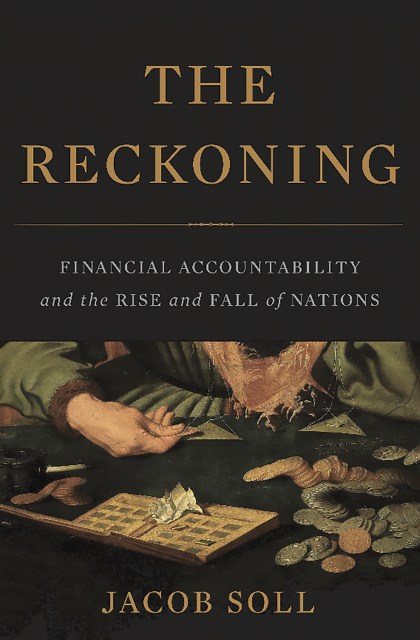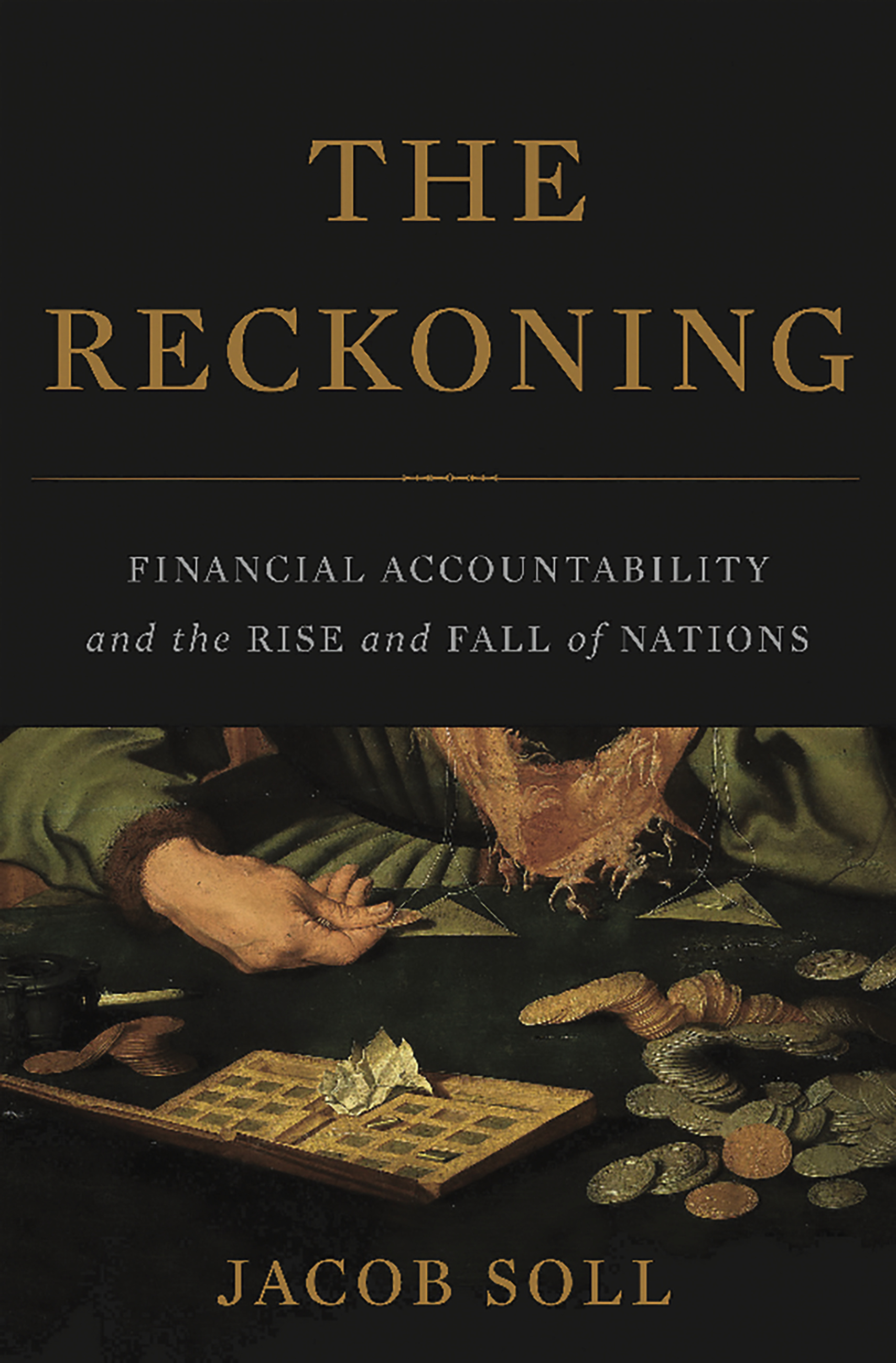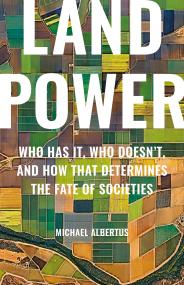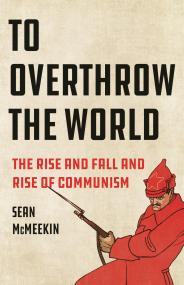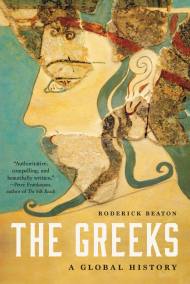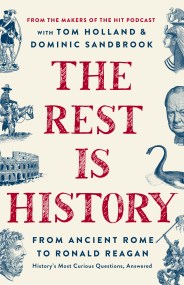By clicking “Accept,” you agree to the use of cookies and similar technologies on your device as set forth in our Cookie Policy and our Privacy Policy. Please note that certain cookies are essential for this website to function properly and do not require user consent to be deployed.
The Reckoning
Financial Accountability and the Rise and Fall of Nations
Contributors
By Jacob Soll
Formats and Prices
Price
$30.00Price
$38.00 CADFormat
Format:
- Hardcover $30.00 $38.00 CAD
- ebook $19.99 $25.99 CAD
This item is a preorder. Your payment method will be charged immediately, and the product is expected to ship on or around April 29, 2014. This date is subject to change due to shipping delays beyond our control.
Also available from:
Whether building a road or fighting a war, leaders from ancient Mesopotamia to the present have relied on financial accounting to track their state’s assets and guide its policies. Basic accounting tools such as auditing and double-entry bookkeeping form the basis of modern capitalism and the nation-state. Yet our appreciation for accounting and its formative role throughout history remains minimal at best-and we remain ignorant at our peril. Poor or risky practices can shake, and even bring down, entire societies.
In The Reckoning, historian and MacArthur “Genius” Award-winner Jacob Soll presents a sweeping history of accounting, drawing on a wealth of examples from over a millennia of human history to reveal how accounting has shaped kingdoms, empires, and entire civilizations. The Medici family of 15th century Florence used the double-entry method to win the loyalty of their clients, but eventually began to misrepresent their accounts, ultimately contributing to the economic decline of the Florentine state itself. In the 17th and 18th centuries, European rulers shunned honest accounting, understanding that accurate bookkeeping would constrain their spending and throw their legitimacy into question. And in fact, when King Louis XVI’s director of finances published the crown’s accounts in 1781, his revelations provoked a public outcry that helped to fuel the French Revolution. When transparent accounting finally took hold in the 19th Century, the practice helped England establish a global empire. But both inept and willfully misused accounting persist, as the catastrophic Stock Market Crash of 1929 and the Great Recession of 2008 have made all too clear.
A masterwork of economic and political history, and a radically new perspective on the recent past, The Reckoning compels us to see how accounting is an essential instrument of great institutions and nations-and one that, in our increasingly transparent and interconnected world, has never been more vital.
Genre:
-
"Mr. Soll spices his story with big historical personalities.... [He] earns high marks for brevity...as well as for scholarship."Wall Street Journal
-
"Soll's book is chock-full of valuable snippets of information."Global Finance
-
"The Reckoning demonstrates how financial transparency and accounting--essential for capitalism and our global economy--are linked with political transparence and accountability."Pittsburgh Tribune-Review
-
"Fascinating.... A readable romp through a history of accounting."Economia (UK)
-
"A dazzling book, rigorously researched and demonstrating an extraordinary scholarly range."Literary Review (UK)
-
"A brilliant, deceptively brief book.... Soll pulls off the miracle of making his history not a monolith but a mosaic."Los Angeles Review of Books
-
"Who would imagine that a history of accounting and double-entry bookkeeping could be so engaging? Yet in this concise, sharply argued book, Jacob Soll deftly examines and explains the remarkable impact that the practice of accounting has had on the rise--and sometimes the fall--of nation states."Jack Rakove, Pulitzer Prize winning author of Original Meanings
-
"Who knew accounting was so interesting? Jacob Soll does, and in this masterful history of the men and women who have kept, and sometimes cooked, our books, he will convince you, too. The Reckoning does what the best history should: it piques our interest in accounts of the past so that we may better balance our own."Darrin M. McMahon, author of Divine Fury
-
"Every student, teacher and practitioner of business or government should know this history of accounting, from its grounding in theology and philosophy to its central role in the rise of modern commerce, statecraft, and indeed, civilization itself."Robert Bloomfield, Nicholas H. Noyes Professor of Management and Accounting, Cornell University
-
"Many have long known, or at least suspected, that CPAs rule the world. The proof is here. The Reckoning is a tale of power, empire, art and culture--and of their half-hidden puppetmasters from the Roman Empire to the Gilded Age."James K. Galbraith, author of The End of Normal
-
"The history of accounting and accountability is in Jacob Soll's remarkable book a dramatic story of politics, morality, printing, temptation and the destiny of economic society."Emma Rothschild, Director of the Joint Center for History and Economics at Harvard University and, author of Economic Sentiments
- On Sale
- Apr 29, 2014
- Page Count
- 312 pages
- Publisher
- Basic Books
- ISBN-13
- 9780465031528
Newsletter Signup
By clicking ‘Sign Up,’ I acknowledge that I have read and agree to Hachette Book Group’s Privacy Policy and Terms of Use
